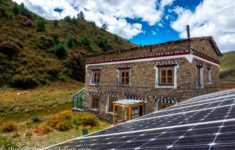Teach people how to design and grow their own organic vegetable gardens. Provide them with the space, the tools and the know-how they need to make it self-sustainable. Provide long term support and create a sense of community around it. Do all of this and you will have Edible Routes, a young company that has been successfully enabling urban farming in Delhi since 2014.
I visited Farm 8, the headquarters of Edible Routes, interviewed the CEO of the company Kapil Mandawewala, and attended a workshop in one of the “farmlet” spaces. These guys have a real and contagious passion about teaching farming. They literally connect people with food, and they keep finding many creative ways to do so.

I love many aspects of this project, above all its enabling power. It isn’t just a permaculture farm selling its own products: by teaching how to do farming, it has a huge potential for influence and expansion. The benefits are all too clear: locally grown, healthy and organic food; a greener city; contribution to the local economy; increased awareness about the value of food.
It is the type of project that brings positive change to the world, showing not only that sustainable business is possible, but it is also economically viable.
THE BEGINNING
Here is how it all started, in the words of Kapil:
I didn’t exactly plan Edible Routes, it kind of happened. I am a graduate in Finance and Information Systems, and I was working in the US in a job that did not satisfy me, so I quit it. I was always passionate about health and food, and I wanted to do something related to it. I understood that farming is where it all begins. That’s why I came back to India and started to work on my family land in Gujarat. Over a four year period, I gathered a lot of skills and know-how about natural farming.

At one point, some neighbours and friends started to ask me how to grow stuff on their balconies or on their rooftops. So I learnt how to do it, I ‘specialised’ so to speak, in order to help them out. I started thinking that perhaps there was a demand for it. Perhaps it was possible to build a business that would help people do just that. That’s how the idea came about. I got to work and in March 2014 we organised the first Edible Routes workshop in Delhi. At the time, we were only two people working on a new project. Now, we are sixteen.
CHALLENGES AND ACHIEVEMENTS
The project has been financed completely with private money. “At the beginning, the main issue was to keep the costs down, and I put a lot of thought into understanding the market. What did people want? How could I get through to them?” Knowing that there is a potential demand was not enough. Kapil told me the hardest part was to make people see value in what they were doing. Something like this requires a change of perspective, which is not always easy to explain. But the workshops were gathering attendance, which kept growing steadily ever since.

Another challenge was to build a team of skilled and motivated people. But there too it seems everything went more than fine. “I consider myself lucky to work with such a team. They are great, and most importantly they love what they do, we share the same vision and we work for a common objective. Many good ideas come from them.”
The project became profitable at the end of the third year, which is pretty good for a startup dealing with natural farming. Today, Kapil and his team keep trying to find new and creative ways to involve as many people as possible. Flexibility is really important to get people on board: “We try to offer many different types of services, which are, in other words, opportunities for people to start farming.”

There is an overall coherence though. When I looked at all the services Edible Routes has put in place, it seemed to me that everything fits well together, piece after piece: the permaculture, the shop, the workshops, the farmlet project and who knows what they will come up with in the future. All these activities are complementary, part of the same whole. Kapil believes in a couple of years they might be ready to start expanding to other cities.
As if this wasn’t enough, Edible Routes is looking into how to create connections between farmers and consumers: “farming is in distress” concluded Kapil “in India as in many other countries. I want people to understand all the work there is behind growing organic food, and the value of the products they find on their table.”
THE HEART: FARM 8
Farm 8 is a relatively small piece of land in sub-urban South-Delhi. When they are not out setting up some gardens, here is where the Edible Routes team works.

Their office is the beating heart of the farm. They have their own small permaculture project and their own rooftop garden of course. It’s a nursery for plants and vegetables, a place to keep learning and experimenting, there’s even a corner specifically dedicated to growing native plants. A couple of farmers have been hired to work here. People who earlier would be on the street offering daily labour for no more than 350 INR per day (about €4.5) now have a stable income and can share precious know-how.
The concept is that of permaculture: they grow only organically, space and resources are shared, volunteers are accepted to give a hand, all the tools are made with natural materials, and there is a strong and perceivable sense of community. I had a clear feeling that all the people there shared the values of what they are trying to achieve and in a very professional way too.
Workshops, shop, support
Farm 8 is the main venue for Edible Routes workshops, which are designed to cover all aspects of natural farming, with a particular attention to urban farming. It all starts here. Expert or beginner, Edible Routes can teach you what you need to improve your farming skills, from the behaviour of plants to soil and space management.

Then they provide everything you need to get started. It’s a one-stop shop approach. Indeed, there is a shop where clients can purchase seeds, soil, bio fertilizers, tools and equipment. Finally, the team provides customised support and advice when it comes to setting up a garden. There are different solutions for different type of gardens and budgets. In the beginning, this support is essential to get things going and not get demotivated.
So far, more than 5,000 people have attended Edible Routes workshops, and over 500 gardens have been set up, mostly in Delhi. A splendid achievement! Moreover, the team cooperates with communities and schools to organise educational activities.
PROJECT FARMLET
That is not the end of it though. For those who do not have a balcony or a rooftop (many I would guess in a city), Edible Routes found a solution called Project Farmlet. It is as smart as it is simple, they rent a bigger piece of land, and they sublet small lots to whoever wants to start growing their own vegetables. The clients are followed and advised by Edible Routes experts, and the whole land is normally under the care of a farmer’s family.
Picnics and workshops are organised as well at the farmlets. I was invited to go and participate in one, organized on the occasion of World Kitchen Garden Day, and specifically about plants that like climbing. It was very interesting, and I had the chance to see the team at work. “The idea is for people to learn from us, but there is also a lot of knowledge sharing here” says Julie, one of Edible Routes farming experts. “It is yet another way to connect people with the food they eat. When they have little time to come over here themselves, we can deliver the harvest directly at their home.”

It was refreshing to see the interest and passion all these “city” people were putting into farming. As someone born and raised in the countryside, it reminded me of people who have grown up in big cities have little to no clue about plants, animals, and nature in general. They need to be taught starting from the very basics, like the need to water a plant after planting it. Edible Routes has set up many small farms of the kind in Delhi and surrounding area. Sometimes they receive the request to set up farmlet by people with land sitting idle, some other times they are asked to set up a vegetable garden in private properties.
“Sometimes people are a little hasty, they want to see the results immediately, and get to harvesting,” Julie says with a sweet, understanding smile. “But they slowly realize it takes time, patience, and a lot of work. So people that previously did not know anything about farming, can now learn the hardship behind a farmer’s life.” This also means that they become more aware of the value of food, they are more careful about food waste and they don’t mind spending a little more money on organic food.
ADOPT A FARMER
Some people don’t have the time to work themselves in the vegetable gardens, but do have land and the means. So, they could “adopt a farmer”. Perhaps entire neighbourhoods could get organised and adopt a farmer or two to grow organic food for them. This is yet another way to connect people and food that Edible Routes is pursuing.
It would be extremely useful for the farmers, who would get a stable income and could focus on their job, instead of selling their products to some retailers for peanuts. At the same time, people would get good and healthy food all year long. It’s a win-win solution that connects farmers directly with consumers. All it’s needed is a little change in mentality and a little push.
I have little doubt Kapil and his team can pull this off too.

Viva the transparency! There are affiliate links in this article. This means if you click on a link and end up buying (or booking) through those websites, I’ll get a small commission, at no extra cost to you. This helps me maintain the blog, and continue to provide (hopefully) useful travel information. I advertise only products I have tested and sites I use myself!







Great stuff!
The adopt a farmer idea is just brilliant
interested in understanding the cost of a guest post and social media feature on theconstantrevolution.com for https://www.google.com/search?q=herbalhealthcbd.co.uk. Can you provide details?